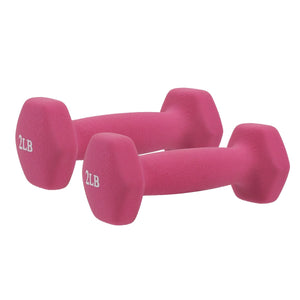For many years, weight loss narratives have predominantly focused on aerobic exercises and restrictive dieting, while neglecting strength training. However, a growing body of research and an evolving understanding of fitness have highlighted the pivotal role of strength training in effective and sustainable weight loss, especially for women. Embracing strength training can transform not just the body but also mental well-being, offering a holistic approach to health.
Understanding Strength Training
Strength training, also known as resistance training or weight training, involves exercises that improve muscle strength and endurance. This can be achieved using free weights, weight machines, resistance bands, or even body weight exercises. Unlike the old myth that strength training is only for bodybuilders, it's a versatile practice that caters to all fitness levels and goals.
Debunking Myths About Strength Training for Women
Before we dive into the many benefits of strength training, it is important to dispel some common misconceptions regarding strength training as a woman. These myths often discourage women from engaging in this highly beneficial form of exercise.
Myth 1: Strength Training Makes Women Look Bulky
Reality: Many women fear that lifting weights will lead them to “bulk up”, look “manly”, or have a masculine physique.(1) However, when compared to men, women generally have lower levels of testosterone, a hormone that significantly influences muscle growth. As a result, women are unlikely to gain large muscle mass easily. Instead, strength training typically results in a toned, leaner appearance, enhancing muscle definition without excessive bulk. Another common misconception is that women should stick to lighter weights with high repetitions. While not without benefits, this approach can limit progress and strength gains, sometimes leading to a plateua in results. To see improvement in muscle tone, strength, and overall fitness, women should challenge themselves with progressively heavier weights. Progressive overload is essential for muscle growth and development.(2)
Myth 2: Cardio Is Better for Weight Loss
Reality: Dr. Dworkin, Professor and Associate Dean at the University of California, San Francisco noted that roughly 70% of people using cardiovascular machines in fitness centers tended to be female.(3) While cardio exercises are effective for burning calories, strength training plays a crucial role in weight loss by increasing muscle mass, which boosts the resting metabolic rate. This means that the body continues to burn more calories even at rest.(4) Combining strength training with cardio is the most effective approach for sustainable weight loss and overall fitness.
Myth 3: Strength Training Is Only for Young Women
Reality: Strength training benefits women of all ages. As women age, muscle mass and bone density naturally decline, leading to a higher risk of osteoporosis and fractures.(5) Strength training helps counteract these effects by maintaining and even increasing muscle mass and bone density. Middle age and older women can significantly improve their strength, balance, and overall quality of life through regular resistance training.(6)
Myth 4: Women Need Different Exercises Than Men
Reality: The principles of strength training are the same for everyone, regardless of gender. Both men and women benefit from compound movements such as squats, deadlifts, bench presses, and rows. These exercises work multiple muscle groups and are highly effective for building strength and muscle tone. The key difference might be in the amount of weight lifted and the specific goals, but the exercises themselves remain largely the same. (5)
Myth 5: Strength Training Doesn't Burn Many Calories
Reality: While strength training might not burn as many calories during the session as cardio, it has a significant afterburn effect, known as excess post-exercise oxygen consumption (EPOC). This means the body continues to burn calories at a higher rate after the workout, aiding in overall calorie expenditure. Additionally, as muscle mass increases, the body’s resting metabolic rate rises, contributing to more calories burned throughout the day.(4, 6)
Benefits of Strength Training
There are so many great health benefits that come as a results of consistent strength training. Here are a few that can play key roles on a weight loss journey.
Metabolic Boost
One of the significant advantages of strength training for weight loss is its impact on metabolism. Muscle tissue is metabolically active, meaning it burns more calories at rest compared to fat tissue. By increasing muscle mass, strength training elevates your resting metabolic rate (RMR), allowing your body to burn more calories throughout the day, even while at rest. For women, this is particularly beneficial as it counters the natural decline in metabolism that comes with age.(7)
Preserving Lean Muscle Mass
When engaging in weight loss, it's crucial to preserve lean muscle mass. Traditional weight loss methods focusing solely on calorie restriction and cardio can lead to muscle loss alongside fat loss. This can result in a weaker body and a slower metabolism. Strength training ensures that while fat is being burned, muscle mass is maintained or even increased. This leads to a leaner, stronger, and more toned physique.(8)
Enhanced Fat Loss
Strength training doesn't just aid in losing weight; it helps in losing the right kind of weight. Studies have shown that combining strength training with cardio and proper nutrition leads to greater fat loss compared to cardio alone. This combination ensures that the weight lost is predominantly from fat stores rather than muscle tissue, contributing to a healthier body composition overall.(9)
Improved Bone Density
Women are at a higher risk of developing osteoporosis as they age. Strength training is a powerful tool that can help increase bone density and prevent bone loss.(10) Weight-bearing exercises stimulate bone formation and slow down bone loss, making bones stronger and less susceptible to fractures. This is a critical benefit, especially for postmenopausal women, who face a significant decline in bone density due to hormonal changes.
Hormonal Balance
Strength training can positively influence hormone levels, which play a crucial role in weight management. It boosts the production of growth hormone and testosterone (in moderate amounts for women), both of which aid in muscle growth and fat metabolism. Additionally, strength training helps reduce levels of cortisol, a stress hormone that can lead to fat accumulation, particularly around the abdominal area.(11)
Mental Health Benefits
The mental health benefits of strength training are profound. Exercise, in general, is known to release endorphins, your "feel-good" hormones. Strength training in particular, has been linked to reduced symptoms of anxiety and depression.(12) It fosters a sense of empowerment and confidence as women see their strength and abilities improve(13). This mental resilience is a crucial component of a sustainable weight loss journey, helping to maintain motivation and consistency.
Practical Tips for Women Starting Strength Training
So, where should you start? Here are 6 tips to start you off on the right foot.
1. Start with the Basics
Begin with fundamental exercises such as squats, lunges, push-ups, and planks. These exercises target multiple muscle groups and lay a strong foundation for more complex movements.
2. Use Proper Form
Learning the correct form and technique is crucial to prevent injuries and maximize effectiveness. Consider working with a trainer initially or following reputable online tutorials (like the SunnyFit® App!) to ensure proper alignment and execution.
3. Gradual Progression
Start with lighter weights and gradually increase the resistance as your strength improves. This progressive overload ensures continuous muscle adaptation and growth.
4. Consistency Over Intensity
Consistency is key in strength training. Aim for at least two to three sessions per week and focus on gradual improvements rather than pushing for high intensity from the start.
5. Combine with Cardio and Flexibility Training
While strength training is essential, combining it with cardio exercises and flexibility training (like yoga or stretching) provides a balanced fitness regimen, enhancing overall health and weight loss.
6. Nutrition Matters
Adequate protein intake is vital to support muscle repair and growth. Ensure your diet includes a balanced mix of protein, healthy fats, and complex carbohydrates to fuel your workouts and recovery.
Lift Your Way to Health
Strength training is a powerful and effective component of weight loss that offers unique benefits that go beyond mere aesthetics. For women, it provides a multifaceted approach to health, enhancing metabolism, preserving muscle mass, improving bone density, balancing hormones, and boosting mental well-being. By embracing strength training, women can achieve not just their weight loss goals, but also a stronger, healthier, and more empowered version of themselves.
So, pick up those weights, embrace the strength within, and witness the transformative power of strength training in your weight loss journey.


1,3. Dworkin SL. A woman’s place is in the…cardiovascular room?? Gender relations, the body, and the gym. In: Bolin A, Granskog J, editors. Athletic Intruders. Albany, NY: State University of New York Press; 2003. pp. 131–158.
2. Adams, A. (n.d.). Progressive Overload Explained:Grow Muscle and Strength Today. National Academy of Sports Medicine.
https://blog.nasm.org/progressive-overload-explained#:~:text=Without%20this%20progressive%20overloading%2C%20muscle,the%20stress%20placed%20upon%20it. Accessed 20 June 2024.
4. Westcott, Wayne L. PhD. Resistance Training is Medicine: Effects of Strength Training on Health. Current Sports Medicine Reports 11(4):p 209-216, July/August 2012. | DOI: 10.1249/JSR.0b013e31825dabb8
5,6,12. Ransdell, L. B., Wayment, H. A., Lopez, N., Lorts, C., Schwartz, A. L., Pugliesi, K., Pohl, P. S., Bycura, D., & Camplain, R. (2021). The impact of resistance training on body composition, muscle strength, and functional fitness in older women (45-80 years): A systematic review (2010-2020). Women (Basel, Switzerland), 1(3), 143–168. https://doi.org/10.3390/women1030014. Accessed 20 June 2024.
7. Nuckols, G. (n.d.). Strength Training for Women: Setting the Record Straight. Stronger By Science. https://www.strongerbyscience.com/strength-training-women/. Accessed 20 June 2024.
8. University of New South Wales. (2021, September 22). Strength training can burn fat too, myth-busting study finds. Science Daily.
https://www.sciencedaily.com/releases/2021/09/210922121905.htm. Accessed 20 June 2024.
9. Westcott, Wayne L. PhD. Resistance Training is Medicine: Effects of Strength Training on Health. Current Sports Medicine Reports 11(4):p 209-216, July/August 2012. | DOI: 10.1249/JSR.0b013e31825dabb8.
10. Thomas, M. H., & Burns, S. P. (2016). Increasing Lean Mass and Strength: A Comparison of High Frequency Strength Training to Lower Frequency Strength Training. International journal of exercise science, 9(2), 159–167.
11. Kim J. Y. (2021). Optimal Diet Strategies for Weight Loss and Weight Loss Maintenance. Journal of obesity & metabolic syndrome, 30(1), 20–31. https://doi.org/10.7570/jomes20065. Accessed 20 June 2024.
13. Jennifer L. Copeland, Leslie A. Consitt, Mark S. Tremblay, Hormonal Responses to Endurance and Resistance Exercise in Females Aged 19–69 Years, The Journals of Gerontology: Series A, Volume 57, Issue 4, 1 April 2002, Pages B158–B165, https://doi.org/10.1093/gerona/57.4.B158. Accessed 20 June 2024.
14. Craft, L. L., & Perna, F. M. (2004). The Benefits of Exercise for the Clinically Depressed. Primary care companion to the Journal of clinical psychiatry, 6(3), 104–111. https://doi.org/10.4088/pcc.v06n0301. Accessed 20 June 2024.
15. Hurley, K. S., Flippin, K. J., Blom, L. C., Bolin, J. E., Hoover, D. L., & Judge, L. W. (2018). Practices, Perceived Benefits, and Barriers to Resistance Training Among Women Enrolled in College. International journal of exercise science, 11(5), 226–238.

























Add Your Name & Email
Please enter your name and email to continue.We won’t display your email publicly.
3 comments
Great article! Very important information! 🙌🏅👏
This was a great read
This was a great read to help me go forward with my fitness journey